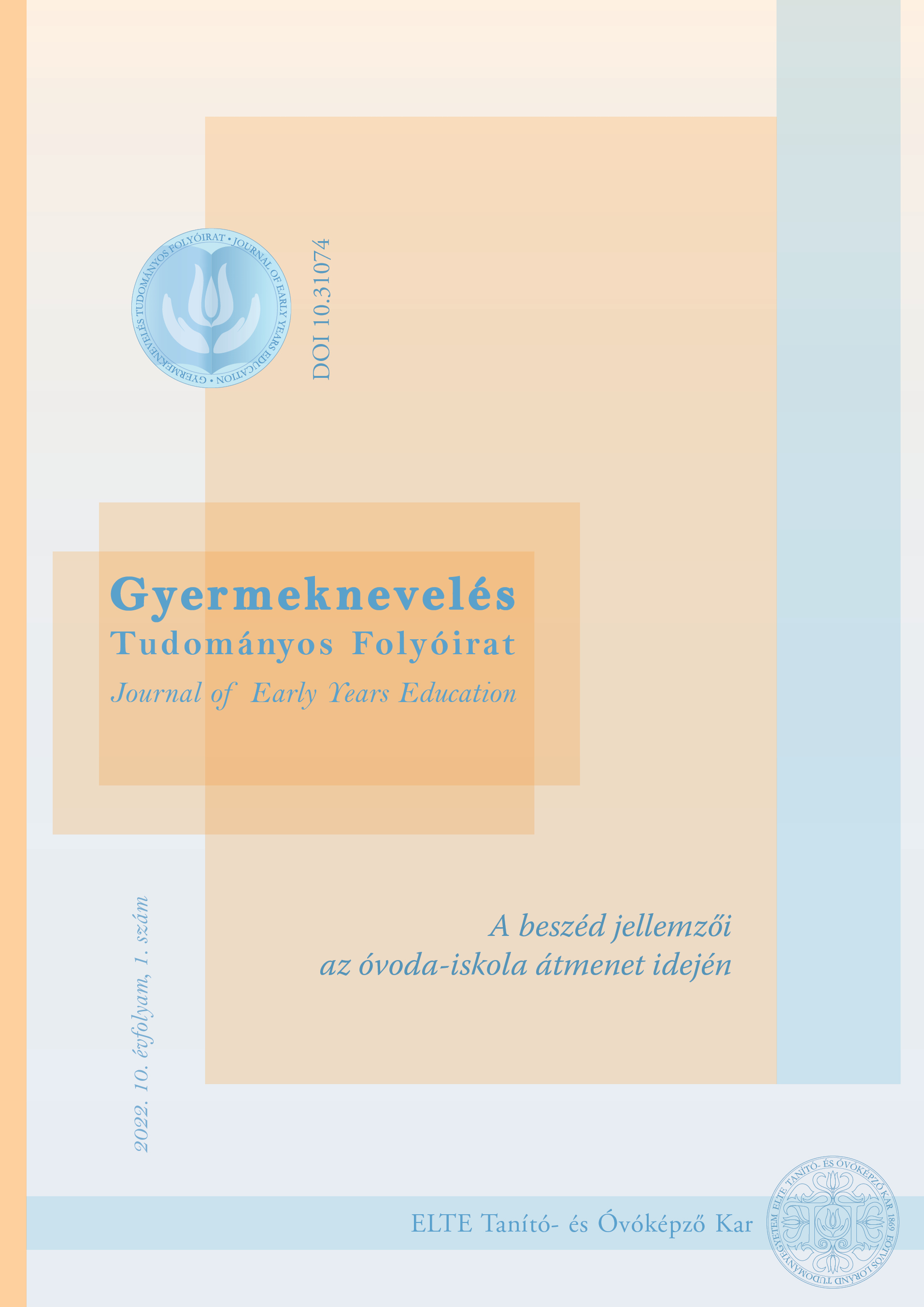The role of phonological awareness in school readiness
Óvodáskorban alkalmazható dalos, játékos feladatok az olvasás és írás elsajátításának előkészítéséhez
DOI:
https://doi.org/10.31074/gyntf.2022.1.161.167Keywords:
school readiness, phonological awareness, typical and atypical language development, dynamic assessmentAbstract
The kindergarten years (5—6 years of age) are important period in the life of a child, when the teacher’s role is to monitor their school readiness. Metalinguistic tasks provide a window onto the degree of maturity of cognitive and language abilities. Phonological awareness surveys focus on the development of syllable and rhyme awareness at this point. However, the emergence of the phoneme level is also crucial for the successful acquisition of the written language. Dynamic assessment provides a view on the extent of the required assistance beyond the level of development. The difference between typical and atypical language development can also be followed in the response to intervention. . While static tests show the level of development, dynamic assessment also reveals the difference between the functioning of the syllable and the phoneme levels (Jordanidisz, 2021). Many tasks in the language and music education of kindergarten programs support children’s later success in the academic life.
Downloads
Downloads
Published
How to Cite
Issue
Section
License
Copyright (c) 2022 Author

This work is licensed under a Creative Commons Attribution-NonCommercial-ShareAlike 4.0 International License.

